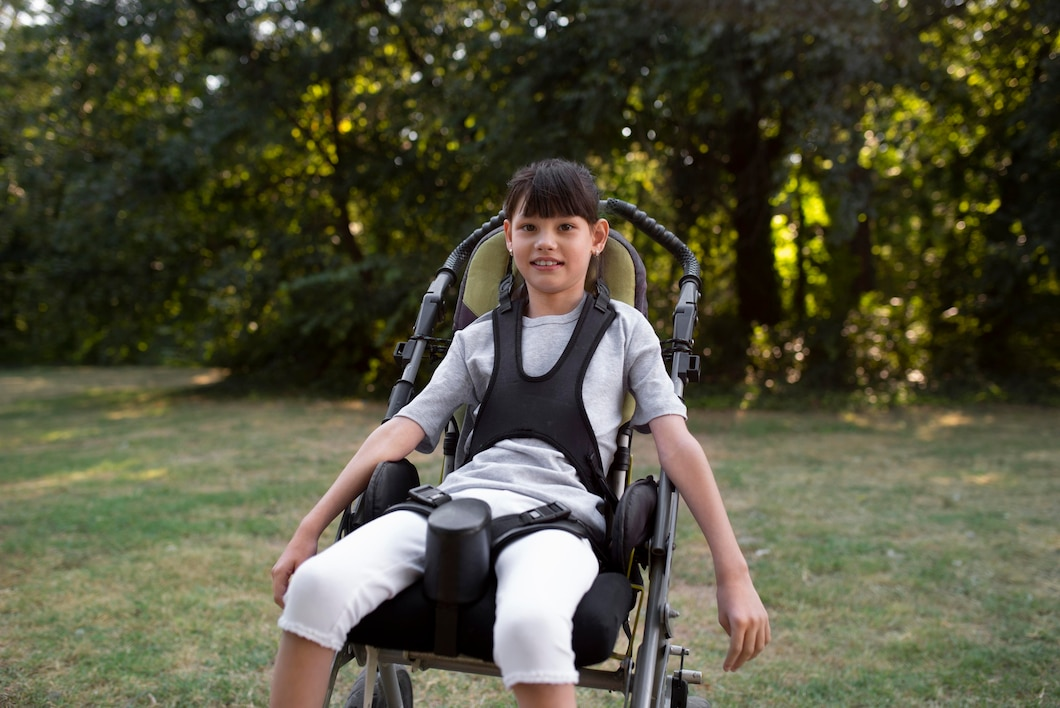Cerebral Palsy in Lexington & Georgetown, KY

At Kentucky Therapy Solutions, we specialize in helping children with Cerebral Palsy improve movement, strength, coordination, and independence through personalized pediatric therapy. Our experienced team provides child-focused, family-centered care at our Lexington clinic, supporting children from infancy through adolescence.
If your child has been diagnosed with Cerebral Palsy, early and consistent therapy can make a meaningful difference in their development and quality of life.
Pediatric Cerebral Palsy Therapy in Lexington
Cerebral Palsy (CP) is a neurological condition that affects muscle tone, posture, balance, and motor development. Because every child experiences CP differently, therapy must be individualized, goal-oriented, and adaptable as your child grows.
At Kentucky Therapy Solutions, we create customized therapy plans designed to help children:
- Improve mobility and motor skills
- Increase strength and endurance
- Enhance balance and coordination
- Develop functional independence
- Participate more fully at home, school, and in the community
Our clinic serves families throughout Lexington and surrounding Kentucky communities seeking specialized pediatric care.
Our Approach to Cerebral Palsy Treatment for Children
We use an evidence-based, child-centered approach that focuses on functional outcomes and long-term progress. Therapy sessions are engaging, supportive, and structured to meet your child’s physical and developmental needs.
What Makes Our Approach Different
- Pediatric-only focus
- Individualized treatment plans
- Functional, play-based therapy methods
- Family education and involvement
- Clear goals and measurable progress
We work closely with parents and caregivers to ensure therapy strategies carry over into daily routines.
Types of Cerebral Palsy We Support
Our team has experience working with children diagnosed with:
- Spastic Cerebral Palsy
- Dyskinetic Cerebral Palsy
- Ataxic Cerebral Palsy
- Mixed Cerebral Palsy
We adapt therapy techniques based on your child’s diagnosis, abilities, and developmental stage.
Pediatric Therapy Services for Cerebral Palsy
Depending on your child’s needs, therapy may focus on:
Gross Motor Development
- Sitting, crawling, standing, and walking
- Transitions and postural control
- Gait training and mobility skills
Strength and Flexibility
- Muscle strengthening
- Stretching and range of motion
- Reducing stiffness and tightness
Balance and Coordination
- Improved body awareness
- Safer movement and stability
- Functional play and activity participation
Functional Independence
- Age-appropriate daily activities
- School and playground readiness
- Confidence in movement
Why Early Therapy Matters for Children with Cerebral Palsy
Early intervention plays a critical role in maximizing a child’s developmental potential. Pediatric therapy can:
- Support healthy movement patterns
- Reduce the risk of secondary complications
- Improve long-term mobility and independence
- Encourage confidence and participation
Whether your child is newly diagnosed or continuing care, therapy can be beneficial at every stage.
Serving Families in Lexington, KY
Kentucky Therapy Solutions proudly supports families across Lexington, Kentucky, and nearby areas. Our clinic is designed to be welcoming, accessible, and child-friendly, creating a positive environment where children feel safe and supported.
Schedule a Pediatric Cerebral Palsy Evaluation
If you are looking for Cerebral Palsy therapy for children in Lexington, KY, our team is here to help. We will take the time to understand your child’s needs, answer your questions, and create a clear plan forward.
Contact Kentucky Therapy Solutions today to schedule your child’s evaluation and begin their personalized therapy journey.


